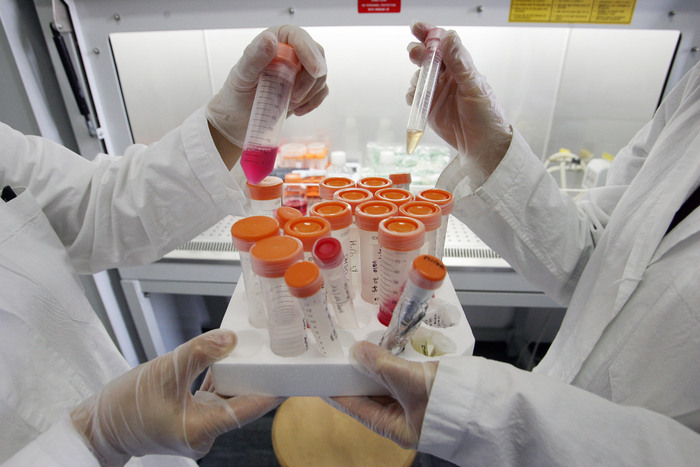Brain stem cell therapy in people with progressive forms of multiple sclerosis is safe and appears to curb the progression of the disease.
These are the first promising data to come from an experiment conducted by researchers at the Irccs San Raffaele hospital in Milan and illustrated in Nature Medicine.
This is only the first step in the human research process, but the results bode well.
The attempt to use stem cells in the treatment of multiple sclerosis is not new.
Experiments with blood (hematopoietic) and mesenchymal stem cells have been conducted in the past.
The results, however, have not been optimal, especially in the progressive forms of the disease.
Those used by the San Raffaele researchers are instead stem cells of the nervous system.
"This type of cell has already been tested in various other pathologies such as ALS or Huntington's disease with the aim of replacing damaged cells", explains the research coordinator Gianvito Martino, scientific director of San Raffaele, to ANSA.
"In our case, however, the cells are infused through a lumbar puncture directly into the cerebrospinal fluid. From here they migrate to the area where there is the damage caused by the disease and act by secreting neuroprotective molecules. They therefore function as a sort of pharmacy travelling", explains Martino.
The phase I trial, called STEMS, has involved, since 2017, twelve patients with progressive multiple sclerosis and high disability, on whom the available treatments had proved to be little or not at all effective.
The patients received different doses of stem cells and tests performed two years after treatment showed "a reduction in brain tissue loss in the patients who received the greatest number of neural stem cells", explains the first signatory of the study Angela Genchi.
Furthermore, the patients had growth factors and neuroprotective substances in the cerebrospinal fluid.
All this could confirm the ability of the treatment to promote repair processes.
The researchers are cautious: the purpose of this phase of research was primarily to evaluate the effectiveness of the treatment.
Furthermore, the number of patients is small.
"All the data, however, goes in the desired direction", Martino points out.
The next step will be to test the effectiveness of the treatment in a larger trial.
The aim is to involve around one hundred patients in several clinical centres;
the characteristics of the patients to be included in the new trial will have to be defined with the regulatory authorities.
"It will take at least 4-5 years to get the new data," says Martino.
"Scientific research times are apparently long", declares Mario Alberto Battaglia, president of the Italian Multiple Sclerosis Foundation (Fism), which supported the experimentation.
"But this is how we can achieve results that are actually able to change people's lives".





/cloudfront-eu-central-1.images.arcpublishing.com/prisa/QZBKEHFL6RHI5FSPQNNBZGIIUA.jpg)

